The Los Angeles Conservancy offers weekend walking tours of downtown, known as DTLA. We signed up for the Art Deco tour, a style that really took off in LA because it coincided with a construction boom in the late 1920s.
 |
| SoCal Edison Building |
Steve, our docent, was a retired pediatrician and, we eventually learned, a friend of Dorothy. We met in front of the
Biltmore Hotel built in the
Beaux Arts style. "Moderne," he explained, using the original term for Art Deco, "was a reaction against the classical."

"In skyscrapers, it's all about drawing your eye upward," he continued after taking us to the Title Guarantee Building. Erected in 1930, it's now been converted into loft-style apartments where, for $3000 a month, you can encounter LA's intractable homeless problem as soon as you step outside.

The bas relief above the entrance recalls the building's original function. Just imagine all the title searches conducted here as LA grew and grew in the 20th century!

We stopped next at
Cal Edison, a corner building now occupied by a local bank whose branding, inside and out, is criminal IMHO.
Take one look at the ceiling of the portico, beneath a bronze chandelier, and you know you're in for a treat. Steve said it had the best preserved interior of any building we would visit.
The incredibly grand lobby, two stories high, boasts a dozen different kinds of marble.
Tinted windows, too.
It probably takes the deep pockets of a bank to keep everything as gleaming as we found it.
Zig zags and sun rays are common Art Deco motifs. See top photo, too.
How cool is it that my two favorite cities in America each have an architecturally significant library? But truth be told,
LA's beats
NYC's hands down.
It's hard to see but that geometric dome is covered in a colorful sun mosaic and topped by an arm holding the "light of learning." I wish we'd had time to go inside.
You'll find learning on the steps as well as in the stacks.
The building, like the striking black and gold
Richfield Tower just a block or two away and reputed to be the city's finest example of Art Deco, might have been torn down too if it hadn't been able to sell its air rights to the one of the buildings behind it. Like New York, Los Angeles changes fast.
IN THE WORLD OF AFFAIRS WE LIVE IN OUR OWN AGE.
IN BOOKS WE LIVE IN ALL AGES.
The former
James Oviatt Building served as the location for the
Hotel Cortez in the Lady Gaga season of
American Horror Story. Once home to the LA's most exclusive men's department store, it's now called the
Cicada Club where inside you can dine and dance but not take photos. Oviatt was a horrible man whose toxic politics--he supported the Ku Klux Klan--forced the store to close in the 60s after protesters picketed it.
But you can't deny the beauty of the architectural details.
Here's an elevator panel.
And
Lalique designed the glass panels on either side of the elevator shaft.
This grillwork isn't original although it looks as if it could be.
Cream and mauve terra cotta tiles adorn the facade of the William Fox Building, named for
the early 20th century film producer. It now houses an enormous jewelry center filled with boutique stalls.
As we passed a display of gold rings, Steve told Thom "Maybe if you're good he'll buy you one." I hope he diagnosed childhood ailments better than gay relationships!

Another jewelry center, once the
Sun Realty Building, this time in green terra cotta, a color chosen to match the eventual patina of the bronze windows, subsequently cleaned against the architect's original plan.
Dozens of grand old movie palaces occupy the nearby Broadway theater district. Apple has converted one of them, the
Tower, into a retail store where we cooled off and gawked at the kind of architectural details that made the silver screens so much more glamorous than the ones we hold in our hands. It was both the first theater to be wired for sound (
The Jazz Singer sneaked previewed here) and to be air conditioned.
Steve told us that the LA Conservancy sponsors tours of the old theaters, too. Next time!






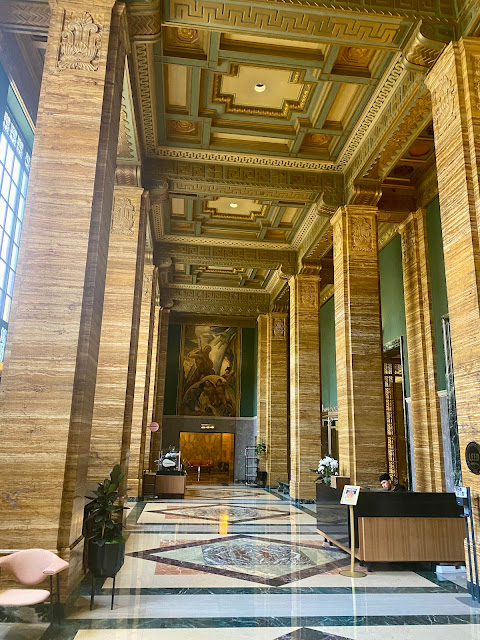
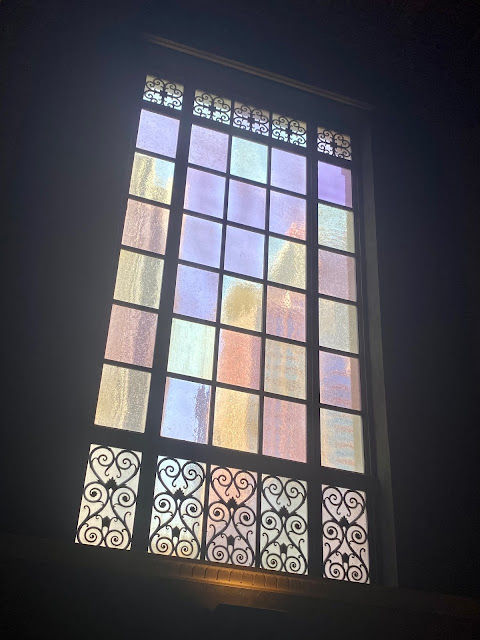











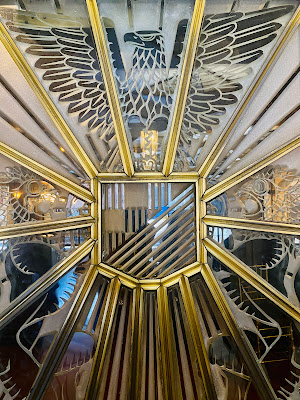



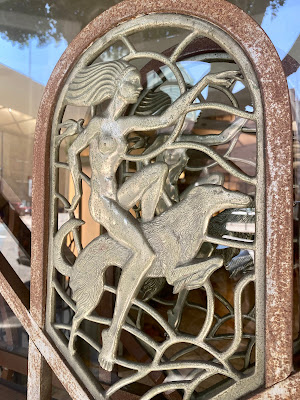
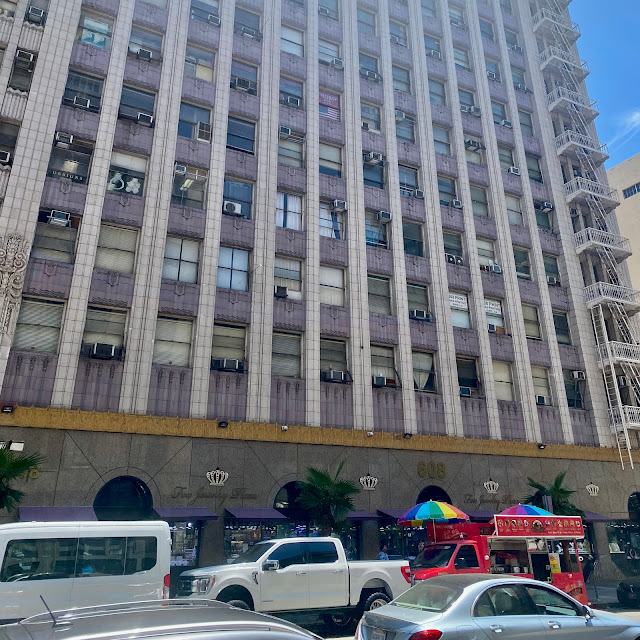



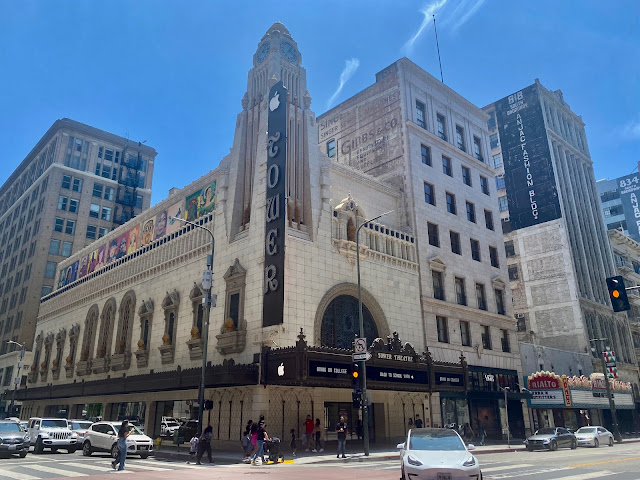



No comments:
Post a Comment